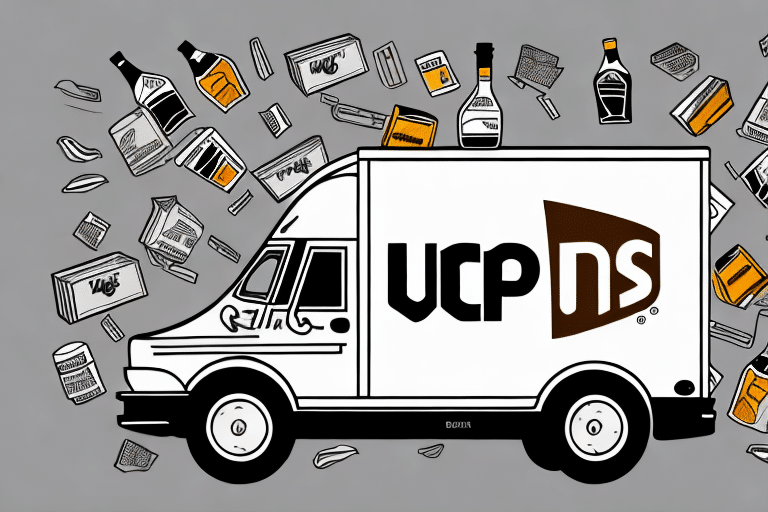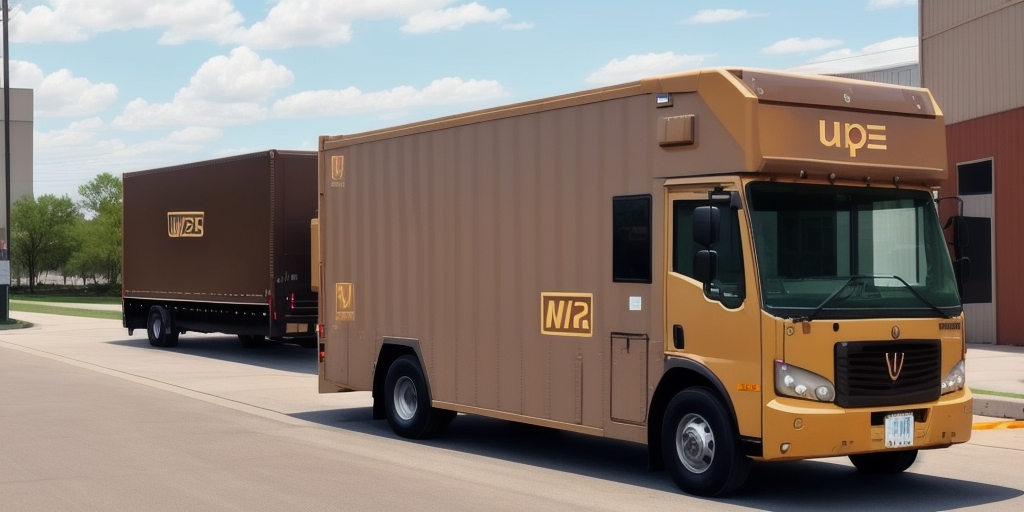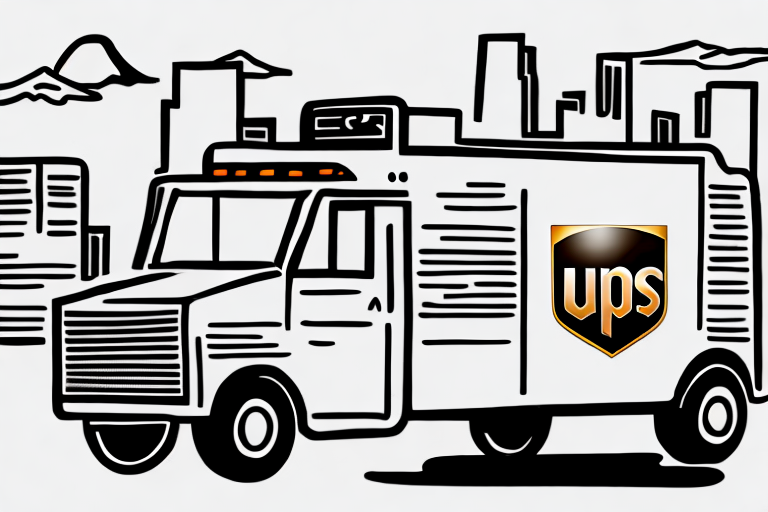Understanding the UPS Alcohol Fee
If you're planning to ship alcohol with UPS, it's crucial to comprehend the UPS Alcohol Fee. This additional charge applies to packages containing alcoholic beverages, potentially increasing the overall shipping cost. This article delves into the specifics of the UPS Alcohol Fee, including its purpose, calculation methods, and strategies to minimize its impact on your shipping expenses.
What is the UPS Alcohol Fee?
The UPS Alcohol Fee is an extra charge imposed on any package that contains alcohol. This fee is in addition to the standard shipping rates and varies based on several factors. The fee covers the additional costs associated with shipping alcohol, such as compliance with federal and state regulations, specialized handling and packaging, and mitigating liability risks.
It's important to distinguish the UPS Alcohol Fee from taxes or duties that may be levied by the destination country. These taxes are the recipient's responsibility and are not included in the shipping cost. Additionally, the applicability of the UPS Alcohol Fee may vary by country or state, so it's advisable to consult UPS before shipping any alcohol-containing packages.
How the UPS Alcohol Fee Works
The UPS Alcohol Fee is determined by various factors, including the destination of the package, the type of alcohol being shipped, and the package's value. Typically, the fee is calculated as a percentage of the total shipping cost, but it can also be a fixed rate per package or per shipment.
Beyond the alcohol fee, shipments containing alcohol must adhere to strict regulations, such as age verification and appropriate packaging standards. Non-compliance can lead to additional fees or legal consequences. It's recommended to consult UPS or a legal expert when shipping alcohol to ensure all regulations are met.
Factors Determining the UPS Alcohol Fee
- Destination: Shipping to different states or countries can affect the fee due to varying regulations.
- Type of Alcohol: Beer, wine, and spirits may have different fee structures.
- Package Value: Higher-valued packages may incur higher fees.
- Volume: The amount of alcohol being shipped can influence the fee.
- Recipient's Age: In certain states, verifying the recipient's age can impact the fee.
Minimizing the UPS Alcohol Fee
- Consolidate Shipments: Combine multiple alcohol items into a single package to reduce the number of fees.
- Secure Packaging: Properly package alcohol to minimize the risk of damage, potentially avoiding additional handling fees.
- Explore Alternative Carriers: Some shipping companies may offer lower alcohol fees or specialized services for alcohol shipping.
- Accurate Declarations: Clearly declare the contents and value of the shipment to prevent unexpected fees.
Alternative Shipping Options for Alcohol
If the UPS Alcohol Fee is prohibitive, consider alternative shipping methods or carriers. Some carriers specialize in alcohol shipping and may offer more competitive rates or services tailored to alcohol shipments. Freight forwarding services or consolidators can also help reduce costs by combining multiple shipments.
Specialized courier services that focus on alcohol delivery often have the expertise and infrastructure to handle alcohol safely and compliantly. Additionally, they may provide value-added services like temperature-controlled shipping, ensuring the alcohol remains in optimal condition during transit.
Regardless of the chosen method, ensure compliance with all relevant laws and regulations, including obtaining necessary permits and proper labeling.
Legal Considerations for Shipping Alcohol
Shipping alcohol involves navigating a complex landscape of federal and state laws. Key legal considerations include:
- Age Restrictions: It's illegal to ship alcohol to individuals under the legal drinking age, and carriers typically require age verification upon delivery.
- Quantity Limits: Some jurisdictions limit the amount of alcohol that can be shipped to a single recipient.
- Dry Counties and States: Certain areas prohibit alcohol sales and shipments, necessitating thorough research before shipping.
Ensure that all shipments comply with these regulations to avoid fines or legal repercussions. Consulting with legal experts or referring to resources such as the Alcohol and Tobacco Tax and Trade Bureau (TTB) can provide valuable guidance.
Proper Packaging and Labeling of Alcohol Shipments
Proper packaging is essential to protect alcohol during transit and to comply with shipping regulations. Best practices include:
- Use Sturdy Packaging: Utilize strong boxes and cushioning materials to prevent breakage.
- Seal Liquids Securely: Ensure bottles are tightly sealed and consider using plastic bags or other protective layers around each bottle.
- Label Clearly: Clearly label packages containing alcohol with appropriate hazard symbols and include any required documentation.
Additionally, when shipping across state or international borders, additional permits and documentation may be necessary. Always verify the specific packaging and labeling requirements with your shipping carrier.
Common Mistakes to Avoid When Shipping Alcohol with UPS
Shipping alcohol with UPS requires attention to detail to avoid costly mistakes. Common errors include:
- Improper Packaging: Failing to secure alcohol properly can lead to breakage and damage, resulting in additional fees.
- Incorrect Labeling: Inadequate labeling can cause confusion and non-compliance issues.
- Omitting Necessary Permits: Shipping without the required permits can lead to legal consequences.
- Misdeclaring Shipment Contents: Failing to accurately declare the contents and value can result in unexpected fees.
Avoid these mistakes by thoroughly reviewing UPS's shipping guidelines for alcohol and consulting with a shipping expert if necessary.
Customer Experiences and Carrier Comparisons
Customer feedback on the UPS Alcohol Fee often highlights concerns over high costs and inconsistent fee structures. Some customers report frustration with the unpredictability of the fees and have experienced issues with damaged shipments.
When comparing UPS to other carriers, factors to consider include overall shipping costs, the carrier's expertise in handling alcohol, and the availability of specialized services. Some carriers may offer lower fees or better handling practices, making them more suitable for alcohol shipments.
For example, FedEx offers specific guidelines and services for shipping alcohol, which may present a preferable alternative depending on your needs.
Future Outlook for the UPS Alcohol Fee
The shipping industry's regulatory environment is continually evolving, and the UPS Alcohol Fee may undergo changes in response to new laws or market conditions. Potential future developments could include adjustments to the fee structure, the introduction of new compliance requirements, or enhanced services related to alcohol shipping.
Staying informed about industry trends and maintaining open communication with UPS can help shippers anticipate and adapt to any changes affecting the UPS Alcohol Fee.








